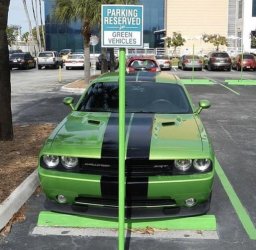Cruiser Elite
Enthusiast
- Joined
- Oct 31, 2010
- Posts
- 14,486
As the growth of Electric Vehicles sales increase in Australia I think a General Discussion thread might be warranted.
FWIW I have had an EV on order since early March 2021 after I first saw it appear in an international market. It will finally be sold in Australia soon - latest advice is I might see it before XMAS - or I may not - but it is not what I would call budget - I will post back post delivery.
FWIW I have had an EV on order since early March 2021 after I first saw it appear in an international market. It will finally be sold in Australia soon - latest advice is I might see it before XMAS - or I may not - but it is not what I would call budget - I will post back post delivery.
















